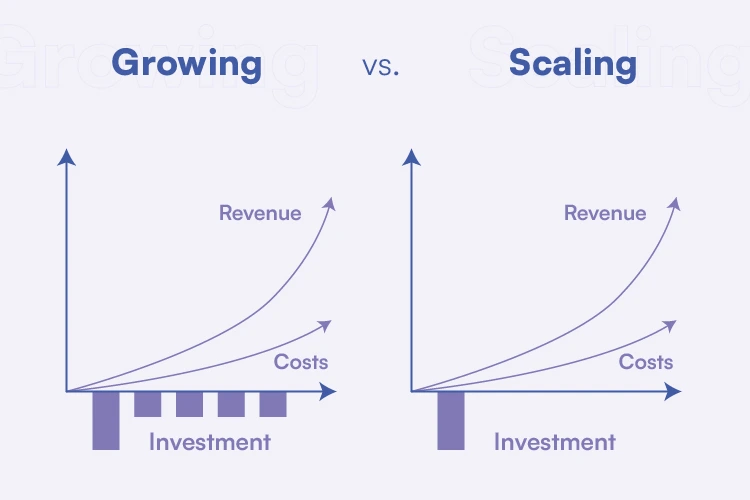Once you’ve honed your fundraising materials, including your pitch deck, financial forecasts, and business plan, the next step is approaching potential investors. It is crucial to recognise that each investor brings unique experiences and expectations, especially regarding the returns they seek.
This revised guide will explore the most common investor questions during a typical Seed investment round. By understanding what drives these questions, you’ll be better equipped to inspire confidence and position yourself for success.
What Early-Stage Investors Prioritize
Seasoned early-stage investors primarily focus on the founding team’s potential and capabilities alongside any initial hires you’ve made. They’re evaluating traits like resilience, commitment, expertise, and adaptability, which are essential as you navigate inevitable market challenges and obstacles.
Additionally, investors will scrutinise the market size for two main reasons:
- A larger market increases the potential for significant returns.
- A broader market provides flexibility, allowing you to pivot if necessary while remaining competitive.
It’s vital to understand that not all investors think alike. For instance, an angel investor who has exited a modest business and is now supporting a few up-and-coming entrepreneurs will have a different mindset than a venture capitalist (VC) managing a 15-25 strategic investment portfolio. Both investors aim to generate returns, but the VC must focus on securing significant wins to offset inevitable losses. This divergence shapes the questions they ask and their expectations of you.
Questions About Scalability and Growth

VCs, in particular, are interested in scalability because their investment model relies on identifying startups that can grow exponentially. They need assurance that your business has the potential to deliver exceptional returns, not just moderate gains.
Expect to field questions such as:
- What is your business model, and how do you generate revenue?
- What are your plans for scaling the company?
- How is your cost structure designed, and how do you manage overhead?
- How dependent is your sales process on manual effort?
- What does your cash flow look like, and how does it cycle?
Investors seek businesses that can increase without being bogged down by operational inefficiencies or high overhead costs. They’ll want reassurance that your gross margins are robust and can support ongoing growth. It’s also crucial to demonstrate that your customer acquisition process can be streamlined, even to the point of being automated, to minimise the need for additional sales staff.
Furthermore, predictable cash flow streams are highly appealing to investors. They’ll be especially interested if your suppliers allow payment terms that give you flexibility or if your customers are subscribing to a repeatable, predictable income stream.
Critical Insight: To convince investors, you must show that there are minimal barriers to rapid growth. Early-stage losses may be acceptable, but a slow-to-scale business will raise concerns.
Questions About Performance

The most compelling evidence you can present to investors is proof that customers are willing to pay for your product. Evidence of increasing customer loyalty and growing customer spending over time is even better. Steady and predictable revenue growth is the strongest signal that you’re on the right track.
Expect questions like:
- What have the Evidence figures been?
- How much traction have you gained so far?
- What is your even better customer lifetime value (CLV), and how much does acquiring them (CAC) cost?
- Can I review your financial projections?
- What metrics are you using to measure success?
When addressing performance questions, it’s essential to highlight your revenue growth over time, especially if you’ve seen consistent improvement in recent months or quarters. Investors will also evaluate how much revenue you’re generating relative to your time in business and how much funding you’ve received.
If your company has been around for several years but has only a few customers, it may signal to investors that you’re not likely to be the breakout success they’re seeking. For early-stage startups, while you might not have detailed metrics on customer acquisition and lifetime value, it’s essential to provide rational estimates or initial data points. Investors want to see that you’ve thought carefully about spending on marketing efficiently and generating substantial profit in return.
Key Insight: Your revenue trajectory is the best indicator of potential success. Investors will look for companies that grow their revenue quickly and efficiently.
Questions About Operations

Investors also want to see your revenue trajectory and understand the inner workings of your day-to-day operations. They’re interested in how well the internal structure supports the company and whether key competencies are in-house or outsourced.
For example, investors expect a development team if you’re a software company. If you’re running a consumer-facing app, you might get away with outsourcing tech development for a while, but you’ll need to demonstrate that you’re bringing other vital skills like marketing in-house.
Some common operational questions include:
- What problem is your business solving?
- What potential risks do you foresee?
- How did you develop your pricing strategy?
- How have you validated your revenue streams?
- How will you handle regulatory changes, cybersecurity threats, or other setbacks?
- What are your plans for product development?
Critical Insight: Investors want assurance that your business operations are efficient and well-structured, especially as your company scales.
Questions About the Team

For early-stage investors, the team behind the business is often the most critical factor in their decision-making. They must be confident that the leadership can drive the company forward, even through potential pivots and unforeseen challenges.
Expect questions such as:
- Who are your senior team members, and what relevant experience do they bring?
- Have you experienced failure before, and what did you learn from it?
- Who are your advisors or mentors?
- What is your hiring strategy, and how do you plan to attract top talent?
While logos of past employers might be impressive, investors are more interested in hearing how your past experiences have prepared you to lead this venture. They want to know whether your team is adaptable and resilient and whether you can attract and retain the best talent as you grow.
Critical Insight: The team is a crucial factor in early-stage investments. Investors are looking for leadership that can navigate challenges and inspire top talent to join the mission.
Questions About the Funding Round

Naturally, investors will want to dive into the specifics of your current funding round. They’ll already have some details from your pitch deck and business plan, but they’ll want to probe deeper to understand why you’re raising a specific amount and how you plan to use the funds.
Expect questions like:
- Why are you raising £X, and how did you determine that amount?
- What critical milestones must you hit before your next funding round?
- How do you plan to measure success with the funds you’re raising?
- When do you anticipate raising again?
- What is your current valuation, and how did you arrive at it?
It’s important to provide investors with a clear, strategic roadmap for how you’ll use the funds you’re seeking and what key achievements will trigger your next investment round. The more precise your plan, the more confident investors will be in your execution.
Critical Insight: Investors want to see a well-thought-out plan for using the funds and a realistic understanding of future funding needs.
Conclusion
Raising funds in the early stages of your business is not just about the money—it’s about proving to investors that your startup has the potential to grow and thrive. By understanding the critical questions investors ask, you can demonstrate your preparedness, scalability, and performance while showcasing a solid team and an efficient operation. Being transparent and confident in your vision, business model, and financial planning is crucial. Ultimately, the ability to answer these critical questions will give investors the confidence that you are the right founder to lead your business to success, which will be instrumental in securing the funding you need to take your venture to the next level.












